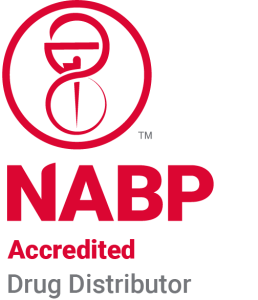IPC Legislative Accomplishments
After more than a decade of Government Relations efforts, IPC is one of the most recognized community pharmacy advocacy organizations in the nation. The government relations team works tirelessly to advocate for legislation that will benefit independent pharmacies and their patients. With each year that passes we find new successes and new battles to fight. We work with state officials at the local level and advocated for change at the national level with a yearly visit to the U.S. Capitol. We proudly showcase our legislative accomplishments that have transformed the landscape for independent pharmacies. Over the past 11 years, our relentless advocacy has led to the passage of over 90 laws across 24 states.
Discover how our dedicated efforts are driving impactful change, empowering your pharmacy to thrive and better serve your community. Stay informed and join us in our mission to shape a more equitable healthcare future.
Legislation, Regulations, & Government Action by State
Arizona – 1
Arkansas – 1
California – 10
Colorado – 10
Florida – 6
Idaho – 2
Illinois – 3
Indiana – 1
Iowa – 5
Kentucky – 2
Michigan – 5
Minnesota – 3
Montana – 7
New Mexico – 1
New York – 4
North Dakota – 2
Ohio – 11
Oregon – 5
Pennsylvania – 1
Texas – 12
Utah – 2
Washington – 2
Wisconsin – 2
Wyoming – 1
2023
California
- AB 317: Provides pharmacists with provider billing status for all patient care authorized under Pharmacist scope authority.
Colorado
- HB 23-1227: Creates PBM licensing and enforcement authority over PBMs under CO Insurance law with penalties for PBM violations.
Florida
- Licenses and regulates PBMs under Florida Insurance law: Enforcement and penalties for violations, including PBM-owned or affiliated pharmacies transparency, patient steering ban, pass-through pricing to ban spread pricing, pharmacy network adequacy, claw backs bans, reimbursement appeals procedures, and PBM accreditation standards bans.
Idaho
- HB 215: Gives authority to the director of the Department of Insurance to enforce existing PBM laws.
- HB 291: Addresses PBM audit practices, including a prohibition of extrapolation audits, and creates an appeals process.
Illinois
- HB 3631: Prohibits PBMs from retaliating against pharmacists or pharmacies for utilizing PBM laws in courts, administrative hearings, or legislative committees.
Indiana
- HB 1568: Allows pharmacists to prescribe and dispense hormonal contraceptive patches and self-administered contraception.
Michigan
- SB 219: Permits pharmacists to independently administer ACIP recommended immunizations to patients 3 years and older; allows pharmacists to order and administer CLIA-waived tests.
- HB 4276: Makes Michigan Medicaid managed care Rx reimbursement reforms (NADAC and PDF) payment mandate permanent.
New York
- The New York Medicaid Pharmacy Program (NYRx) was successfully implemented on April 1, 2023, carving out the pharmacy benefit from Medicaid managed care (projected $400 million savings).
Ohio
- Ohio Medicaid managed care single PBM contracted pharmacies received higher tiered PDF for claims between Oct. 1, 2022, and June 30, 2023, and permanently after June 30th (nearly 6 percent increase).
Oregon
- SB 608: Requires the Oregon Health Authority to conduct a cost of dispensing survey of Medicaid pharmacy providers every three years and to request a state plan amendment to change the professional dispensing fee for reimbursement. The first survey is to begin no later than Jan. 2, 2024.
- HB 2728: Requires PBMs to notify pharmacies about claims denials or reductions at the point of sale and prohibits retroactive fees.
2022
California
- MEDI-Cal: Successful start of Medicaid Carve out to FFS (NADAC & $10.05) with $380 million net savings and full payment to pharmacy.
- State Budget Bill: Elimination of Medicaid FFS independent pharmacy claw back of ingredient cost payments, saving small pharmacies $144 million.
Colorado
- Medicaid Pharmacist’s Provider Billing Status: Program implementation regulations (paid through State Medicaid FFS program).
Florida
- Governor’s Executive Order (22-164): Requires cost-based reimbursement pass-through transparency for FL Medicaid managed care and FL State Public Employee Health Benefits Rx programs.
Illinois
- HB 4430: Authorizes pharmacists providing HIV PrEP/PEP patient care.
New York
- Public Comments: Input for development of implementing regulations for New York State PBM Licensure and Regulation Law.
New Mexico
- HB 42: Enacted full pharmacist provider billing status law.
Ohio
- Medicaid Managed Care: Implemented single PBM contract to implement cost-based pass-through reimbursement (AAC drug reimbursement & 3 tier COD fees), increasing OH independent pharmacy fees reimbursement by 995%.
Oregon
- HB 4034: Enacted disease-specific pharmacist provider billing status law.
2021
Colorado
- HB 21-1275: Modifies Colorado’s Medicaid program to include payments to pharmacists when working in a collaborative practice agreement with a physician and allows clinical pharmacists services to be reimbursed at federally qualified health centers.
Kentucky
- Department of Medicaid: Medicaid Managed Care Rx program cost-based transparent (NADAC and COD PDF) independent pharmacy reimbursement mandate.
Montana
- SB 395: State licensure requirement for PBMs; prohibits PBMs from using deceptive advertising; requires PBMs to offer adequate provider networks.
Michigan
- Department of Medicaid: Medicaid Managed Care Rx program cost-based transparent (NADAC and COD PDF) independent pharmacy reimbursement mandate.
North Dakota
- HB 1492: Prohibits PBMs from holding pharmacies responsible for a fee for prescription claims processing/transaction fees.
New York
- S3762: Creates state licensure of PBMs and Regulation of PBM economic contract provisions (including ERISA plans).
- S3566: Expansion of Anti-Mandatory Mail Order law.
Ohio
- HB 110: Medicaid managed care Rx enhanced dispensing fee continues for two additional years.
Texas
- HB 1763: Prohibits PBMs from retroactively reducing claim amounts through effective rates, quality assurance programs, or other means; prohibits a PBM from reimbursing its affiliated pharmacies at higher rates than non-affiliated pharmacies; protects a pharmacy’s right to offer home-delivery services; prohibits a PBM from requiring accreditation requirements that are more stringent than those required by the state or federal government; protects a pharmacy from PBM retaliation for exercising its rights under the bill.
- HB 1919: Prohibits a PBM/insurer or its affiliate from transferring patient data for a commercial purpose; prohibits a PBM/insurer from steering patients to, or requiring a patient to use, an affiliated pharmacy.
Wisconsin
- SB 3: Licensure and regulation of PBM practices (prohibits gag clauses, fair audit procedures, requires notice of pharmacy accreditation).
- SB 255: Requires the state Medicaid program to provide Medicaid reimbursement for medical services provided by licensed pharmacists.
2020
California
- AB 1710: Allows Pharmacists to administer all FDA Approved Vaccines.
New York
- S 7506 (State Appropriations Act): Enactment of Medicaid managed care Rx program carve out to Medicaid Fee for Service payment (NADAC and cost to dispense fee).
Michigan
- HB 5396 (State Appropriations Act): Mandate for transparent cost-based pharmacy reimbursement for Medicaid Managed Care prescription claims; protections against MCO: claim payment claw back; prior authorizations; fee increases.
Ohio
- Ohio Medicaid Department (OMD): Award of Medicaid single PBM contract with transparent pass-through payments mandate.
- Implementation of Appropriations Act: Pharmacy lifeline additional dispensing fee ($3/script).
- Final regulations: For Medicaid Pharmacists Medical Services Provider billing status.
Pennsylvania
- HB 941: Authorize state study of Medicaid Managed Care Rx Program spread pricing. Authorizes PA Medicaid audit of PA MCO & requires PA Medicaid review of MCO Rx payment methodology. Prohibits MCO Rx: claims payment claw backs; patient steering; MCO spread pricing; undisclosed P-O-S transmission fees.
2019
California
- Executive Order N-01-2019: Carves out Medi-Cal prescription benefit from Medicaid Managed Care in 2021.
- Medicaid State Plan Amendment 17-002: Provides CMS Medicaid FFS Outpatient Drug rule compliant Medicaid prescription claims reimbursement rates back to April 2017.
- SB 159: Pharmacists gain prescribing authority for HIV PEP and PrEP drugs.
Iowa
- SF 563: Requires PBMs to file an annual report with IA Insurance Department of its prescription drug benefit services program.
Illinois
- HB 465: The Prescription Drug Affordability and Accessibility Act – 1) PBM activities in IL, 2) creates MAC updates and appeals requirements, 3) mandates MCO prescription data reporting to IL Medicaid.
Minnesota
- SF 278: The Minnesota PBM Licensure and Regulation Act; requires a PBM to obtain a state license, requires PBMs to disclose rebate and pricing information to plan sponsors and MN commerce commissioner, requires PBMs to provide pharmacies with an updated MAC list every seven business days, prohibits PBM pharmacist gag clauses on lower drug cost options, limits patient prescription cost-sharing at point of sale, prohibits PBM post-adjudication DIR-type claw back fees, creates anti-mandatory mail order mandate on PBMs, retroactively adjusts a claim for reimbursement submitted by a pharmacy, prohibits PBM specialty drug accreditation beyond federal and state pharmacy legal standards.
Montana
- SB 270: Prohibits pharmacy benefit managers from penalizing a pharmacy or pharmacist for disclosing reimbursement criteria to an enrollee or for selling a more affordable alternative to a covered person. Additionally, prohibits a PBM from requiring a pharmacy to charge or collect a copayment from an enrollee that exceeds the total charges submitted by the network pharmacy.
- SB 83: Prohibits PBM post-adjudication DIR-type claw back fees and specialty drug accreditation beyond federal and state pharmacy legal standards.
- SB 100: Expands pharmacist’s immunization authority.
Ohio
- HB 166: State Appropriations Act. Contains an anti-pharmacist’s gag order and anti-claim claw back provisions. It also regulates Ohio MCO activities and provides a two-year $100 million supplement for an enhanced dispensing fee toward Medicaid managed care claims.
2018
Arkansas
- SB 2: Fully and comprehensively mandates State regulation of PBM activities.
California
- AB 315: Regulates PBM activities under state health insurance laws.
Colorado
- HB 1112: Pharmacist Payment for Licensed Covered Services Health Care Services in underserved areas.
- HB 1284: Bans Pharmacy prescription costs disclosure “gag orders” in PBM contracts.
- HB 1313: Permits Pharmacists As Practitioners, Pharmacy Statewide Drug Therapy Protocols and Medicaid OTC prescribing.
- HB 1007: Authorizes and covers Pharmacists administered Substance Abuse Disorder treatment injections.
Florida
- HB 351: Regulates PBM activities by – 1) mandating state registration of PBMs, 2) enforcement of MAC law updating prices, 3) prohibiting patient “claw back” fees, 4) banning Pharmacy prescription costs disclosure “gag orders” in PBM contracts.
Iowa
- SF 2418: Prohibits PBMs from imposing – 1) patient “claw back” fees, 2) Pharmacy prescription costs disclosure “gag orders” in PBM contracts.
- SF 2322: Expands Pharmacists vaccines administration authority under standing orders.
Kentucky
- SB 5: Mandates Medicaid prescription reforms through – 1) higher dispensing fees, 2) state established MCO Rx reimbursement rates, 3) state approval of MCO fees and contracts, 4) MCO fees assessment reporting.
Ohio
- HB 101: “Epinephrine Accessibility Act” – Allows pharmacists greater authority and power to dispense and substitute epinephrine injectors.
- SB 265: Authorizes insurers to cover and pay for pharmacists provided pharmacy services (pharmacy provider status & pay).
Texas
- Implementation of 2017-18 State Appropriations Act: Rider 60 language relating to MCO pharmacy reimbursement.
2017
Florida
- Succeeded in having several Florida MCO open their networks to more independent pharmacy participants.
- Successfully lobbying Florida Medicaid to adopt less stringent MCO network adequacy standards that resulted in significantly more FL IPC members being added to all FL MCO pharmacy networks.
Montana
- HB 276: Improves MAC updates, prohibits “gag orders” prohibiting pharmacists from talking to a patient about drug prices, allows pharmacies to decline below cost prescriptions.
North Dakota
- SB 2258: Prohibits patient prescription “claw back” fees and pharmacist-patient “gag orders” on prescription costs discussions.
- SB 2301: Pharmacy specialty drug services protections against PBM restrictions and prohibitions.
Ohio
- HB 49 (State Budget): Succeeded in having a COD based Medicaid prescription professional fee (4 tiers $8.30 – $13.64); avoided punitive flat fee for stores not completing Medicaid COD surveys.
Texas
- HB 3218: Regulates PBM activities by the Texas Department of Insurance (TDI) requiring PBMs registration as “delegated entities.”
- SB 894: Requires biennial statewide audits of Medicaid PBMs.
- HB 1917: Continues statewide Medicaid Drug Formulary management (including PDL and PA authorization) by state HHS Commission (HHSC) Vendor Drug Program.
- HB 1296: Medication Synchronization.
State Budget amendments:
- (Rider 25): New HHSC outcomes delivery models for cost-effective and improved outcomes (i.e., comprehensive MTM).
- (Rider 34): HHSC review of Medicaid Prescription drug program (co-pays, drug benefit program flexibility, MCO audits).
- (Rider 219): HHSC study of state program prescription drug benefits review (i.e., single statewide claims PBM model; ACA provider fee reduction, reduced MCO guaranteed risk margin, transition for Medicaid FFS Rx reimbursement to NADAC and COD survey fee).
2016
Arizona
- HB 2692: PBM Audit protections.
California
- AB 1114: Medi-Cal coverage for select pharmacist provided services.
Ohio
- SB 319: MAC Transparency and Update law amendments.
Washington
- SB 5857: Strengthens state regulatory authority over pharmacy benefit managers.
Wyoming
- HB 35: MAC Transparency and Update law amendments.
2015
California
- AB 627: PBM Maximum Allowable Cost (MAC) Transparency.
- AB 97: Hardship Provision Added to Medi-Cal Cuts.
Florida
- HB 1049: PBM MAC Update Provisions.
Iowa
- HF 395: Comprehensive PBM Regulation & Enforcement Provisions.
Montana
- SB 211: Procedures Established for PBM MAC Lists.
Ohio
- HB 64/Ohio State Budget Act: PBM MAC Transparency, Disclosure and Enforcement Provisions.
Texas
- SB 332: PBM MAC Transparency.
- SB 202: Doctor Dispensing Rights Defeated.
Washington
- SSB 5557: Patient Access to Pharmacy Increased.
Wisconsin
- SB 21/Wisconsin Budget Bill: PBM MAC Update and Appeals Provisions.
2014
California
- Medi-Cal Cuts: Mitigated the Scope and Amount of Medi-Cal Cuts to Pharmacy.
Colorado
- HB 1359: Medication Synchronization.
- HB 14-1213: PBM MAC Transparency and Update Provisions.
Florida
- SB 702: PBM Audit Practice Guidelines.
Iowa
- HF 2297: PBM List and Reimbursement Guidelines.
Michigan
- SB 656: PBM MAC Transparency & Appeals Process Provisions.
Minnesota
- Omnibus Budget Amendment: PBM MAC Transparency, List Update & Appeals Process.
Ohio
- SB 258: Common Sense PBM Audit Protections for Pharmacies.
Utah
- SB 194: PBM MAC Contract Provisions and Appeal Rights Enacted; PBM Registration Required.
2012 – 2013
Colorado
- HB 13-1221: PBM Audit Standards.
Minnesota
- HB 1236: Pharmacy Audit Integrity.
Montana
- SB 235: PBM Audit Integrity.
Texas
- SB 1106: PBM MAC Transparency.
- HB 1358: Reasonable Audit Procedures for PBMs and MCOs.
- SB 404: Pharmacist Due-Process Protections.
Utah
- HB 76: PBM Audit Procedure Reform.







